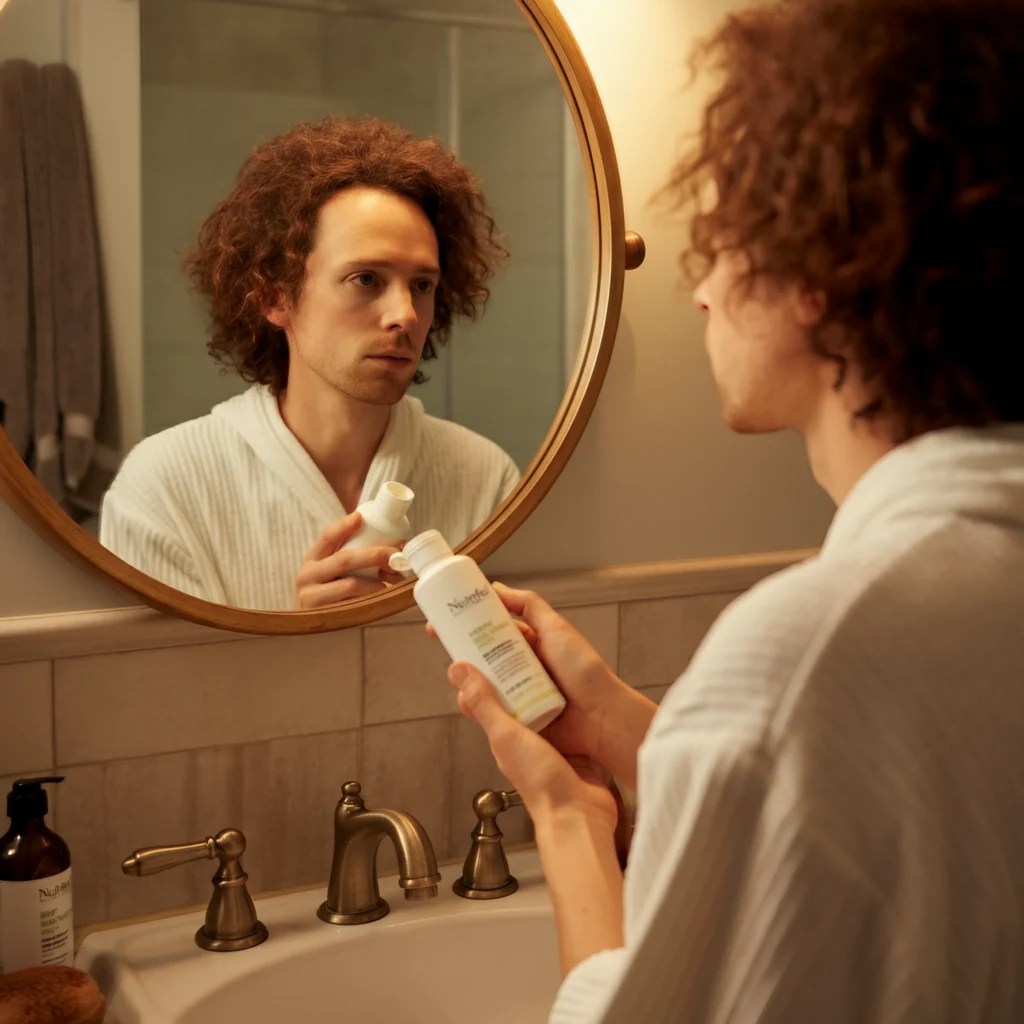
Nutrafol has gained recognition as a leading hair growth supplement, promising fuller, stronger, and healthier hair. Its unique, all-natural formula targets a variety of underlying causes of hair thinning, such as hormonal imbalances, stress, and inflammation. This drug-free, supplement-based solution is beloved by dermatologists and customers alike for its ability to address the root causes of hair loss, rather than merely treating its symptoms.
But one common question lingers in the minds of many who use Nutrafol or plan to try it: What happens after you stop taking Nutrafol? This blog breaks down what you need to know, what to expect, and how to maintain your hair health post-supplementation.
Understanding Nutrafol and Its Role in Hair Growth
How does Nutrafol work?
Nutrafol is not a quick fix; it is a comprehensive solution designed to improve hair health through natural botanical ingredients. It tackles multiple factors that contribute to hair thinning, including stress, hormonal imbalances, poor nutrition, and environmental factors.
Some of its key ingredients include:
- Ashwagandha to lower cortisol (stress levels).
- Saw Palmetto to reduce the effects of DHT, a hormone linked to hair thinning.
- Marine Collagen and Biotin to support follicle health and restore hair strength.
- Curcumin to combat inflammation and oxidative stress within the scalp.
Why does it take time to see results?
Hair growth is a gradual process. Nutrafol typically shows visible improvements in 3-6 months. This is tied to your natural hair growth cycle, which consists of three phases:
- Anagen (growth phase): Hair grows actively for 2-7 years. Nutrafol helps extend this phase.
- Catagen (transition phase): Hair follicles prepare to stop growing, a process that lasts a few weeks.
- Telogen (resting/shedding phase): Old hair falls out to make room for new growth, which takes 2-3 months.
What Happens When You Stop Using Nutrafol?
When you discontinue Nutrafol, the same underlying causes that led to hair thinning in the first place may gradually resurface. Here’s what you may experience:
1. Hair Shedding
Upon stopping Nutrafol, you might notice some additional hair shedding. This occurs because your scalp’s support system (provided by Nutrafol’s active ingredients) is no longer helping to extend the anagen (growth) phase. Hair follicles may revert to their previous state, reentering the telogen (shedding) phase prematurely.
However, this shedding is typically not immediate. It may take a few months post-discontinuation before you see changes, depending on factors such as genetics, stress levels, or your overall health.
2. Reduced Hair Thickness and Volume
Nutrafol actively nourishes your hair follicles to improve hair quality, density, and thickness. When supplementation ends, hair may gradually lose some of the improvements in shine, strength, and volume over time.
3. Return of Underlying Issues
Nutrafol works to balance hormones, lower cortisol levels, and reduce scalp inflammation. Once you stop, these unresolved issues could resurface, potentially contributing to hair loss all over again. For example:
- Hormonal imbalances, particularly linked to DHT or menopause, may result in weaker follicles.
- High stress levels could lead to conditions like stress-induced shedding (telogen effluvium).
4. Psychological Effects
Stopping Nutrafol can also create anxiety about losing progress. This stress alone can worsen hair loss, underscoring the importance of managing both physical and mental health during this transition.
Expert Opinions on Stopping Nutrafol
Dermatologists and trichologists agree that the key to healthy hair growth is consistency. Here are a few expert insights to consider:
- Dr. Mona Mislankar, Board-Certified Dermatologist: “The progress seen with Nutrafol is slow but steady. Stopping it prematurely means halting that progress, so long-term commitment is essential for sustained results.”
- Dr. Rawn Bosley, Hair Restoration Specialist: “Combating hair thinning is a multi-faceted process. Even after stopping Nutrafol, maintaining a robust hair care routine is critical to preserving gains.”
Experts also note that individuals with milder hair loss may see longer-lasting benefits post-Nutrafol compared to those with more severe hair loss, who may rely more heavily on supplementation.
How to Maintain Your Hair Health After Nutrafol
Stopping Nutrafol doesn’t have to mean losing the progress you’ve made. Employ these strategies to maintain your hair health:
1. Adopt a Balanced Diet
Focus on foods rich in essential nutrients for hair, like biotin, zinc, iron, and omega-3 fatty acids. Leafy greens, nuts, eggs, and fatty fish should all make appearances in your meals.
2. Switch to Topical Scalp Care
Consider incorporating anti-inflammatory, topical treatments like serums or oils enriched with ingredients like peppermint oil or rosemary. These can help nourish hair follicles externally.
3. Reduce Stress
Hair and stress are closely linked. Manage anxiety through mindfulness techniques, exercise, or professional counseling to avoid telogen effluvium.
4. Use Supplements with Overlapping Benefits
If a full Nutrafol regimen isn’t feasible, consider standalone supplements like biotin or Vitamin D to support hair health.
5. Switch to Low-Impact Styling
Avoid excessive heat styling, chemical treatments, or tight hairstyles that can weaken hair strands and follicles.
Stories from People Who Stopped Using Nutrafol
Real-world experiences add depth to any discussion, and here’s what Nutrafol users had to say about stopping the supplement:
- Laura, 34: “I saw great improvements over a year of using Nutrafol, but when I stopped, shedding slowly returned after a few months. Investing in a healthier diet and mild shampoos has made a big difference.”
- Jason, 41: “I had to discontinue Nutrafol for financial reasons. After about 4 months, I could see my hair becoming thinner again. My dermatologist suggested using a basic biotin supplement, which helped.”
- Ella, 29: “Stopping Nutrafol gave me some anxiety at first, but I haven’t lost all of my progress. My advice is to stay patient and focus on general scalp care.”
Is Nutrafol Right for You?
Nutrafol is best for individuals seeking a multi-pronged approach to improving hair wellness. However, if you’re considering stopping this supplement, it’s important to:
- Set realistic expectations about potential changes.
- Create a plan to support your hair health.
Remember, hair health is a long-term commitment, and small, consistent actions can yield big results over time—even after Nutrafol.
If you’re concerned about what comes next after Nutrafol, consult your dermatologist. Their expertise, paired with your dedication, will ensure your hair thrives, no matter your next steps.







